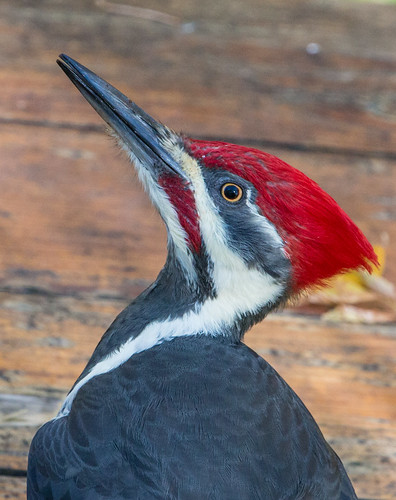Last weekend, when I was driving home from The Biggest Week in American Birding, a festival in Ohio, I found myself driving a little faster than normal on Highway 53 in
Wisconsin.
My rule is always to drive at the slowest speed that is safe, courteous, and convenient. I prefer staying under the speed limit, but there was a lot of traffic going into and through Eau Claire, and I realized I was still going close to 70 by the time I got down to Rice Lake, where there was virtually no traffic at all. Unfortunately, I didn’t realize it until I was approaching a robin sitting in the road ahead.
There were no cars next to or beside me so I braked, the robin flew, and although it was a close call, the robin wasn’t hurt. But I was shaken. I didn’t need to be going over the speed limit there—not for anyone else’s convenience or safety, much less my own. I was shortening my long trip by a few minutes, but what could I possibly accomplish in those few minutes that would have been worth the life of a plucky bird who’d made it through the winter and was finally getting the payoff of a mate, a nest, and young?
My rule is always to drive at the slowest speed that is safe, courteous, and convenient. I prefer staying under the speed limit, but there was a lot of traffic going into and through Eau Claire, and I realized I was still going close to 70 by the time I got down to Rice Lake, where there was virtually no traffic at all. Unfortunately, I didn’t realize it until I was approaching a robin sitting in the road ahead.
There were no cars next to or beside me so I braked, the robin flew, and although it was a close call, the robin wasn’t hurt. But I was shaken. I didn’t need to be going over the speed limit there—not for anyone else’s convenience or safety, much less my own. I was shortening my long trip by a few minutes, but what could I possibly accomplish in those few minutes that would have been worth the life of a plucky bird who’d made it through the winter and was finally getting the payoff of a mate, a nest, and young?
A few miles further down the road, I spotted the body of a
Pileated Woodpecker, crumpled on the side of the road. The cosmic waste hit me
in the heart.
Our driving addiction exacts such a heavy toll—climate change, oil spills at wells and pipelines, toxic sludge, charring at oil refinery gas flare stacks—and if that all isn’t enough, we run ‘em down directly with our own cars.
Our driving addiction exacts such a heavy toll—climate change, oil spills at wells and pipelines, toxic sludge, charring at oil refinery gas flare stacks—and if that all isn’t enough, we run ‘em down directly with our own cars.
I created a little blog at birdspay.lauraerickson.com that
gives some tips about how we can protect birds from all the costs associated
with driving. My suggestions include ways we can reduce our gas consumption to
reduce our personal contribution into the many ways extracting, transporting,
and refining oil kill birds. My car shows my gas mileage every step of the way,
so I’m acutely aware of how much more I use when I drive faster than about 42
miles per hour. But I also include ways we can avoid colliding with birds:
1. Combine trips and use public transportation, bike, or
walk when possible so you can drive as little as possible.
2. Drive at the slowest speed that is safe, courteous, and convenient.
3. When approaching a red light or stop sign, start coasting to a stop sooner. Accelerate gently when possible.
4. Remove heavy items from your vehicle when you don't need them.
5. Keep your tires at the proper inflation.
6. Keep your car in tune.
7. When you see wildlife ahead, look in the mirror to see if anyone is following you, and slow down if you can safely do so.
8. If you know what you're doing, keep an injured-wildlife rescue kit in the car, including phone numbers for area rehab facilities.
2. Drive at the slowest speed that is safe, courteous, and convenient.
3. When approaching a red light or stop sign, start coasting to a stop sooner. Accelerate gently when possible.
4. Remove heavy items from your vehicle when you don't need them.
5. Keep your tires at the proper inflation.
6. Keep your car in tune.
7. When you see wildlife ahead, look in the mirror to see if anyone is following you, and slow down if you can safely do so.
8. If you know what you're doing, keep an injured-wildlife rescue kit in the car, including phone numbers for area rehab facilities.
I’m so tired of people excusing our bad behavior by pleading
ignorance. If we’re going to take pride in ourselves as a species for our
intelligence, claiming to be smarter than every other species on the planet, we
should be using that intelligence to clean up our messes and find safer ways of
getting from one place to another. Otherwise, our only claims of superiority
over other species are in the areas of selfishness and arrogance.
